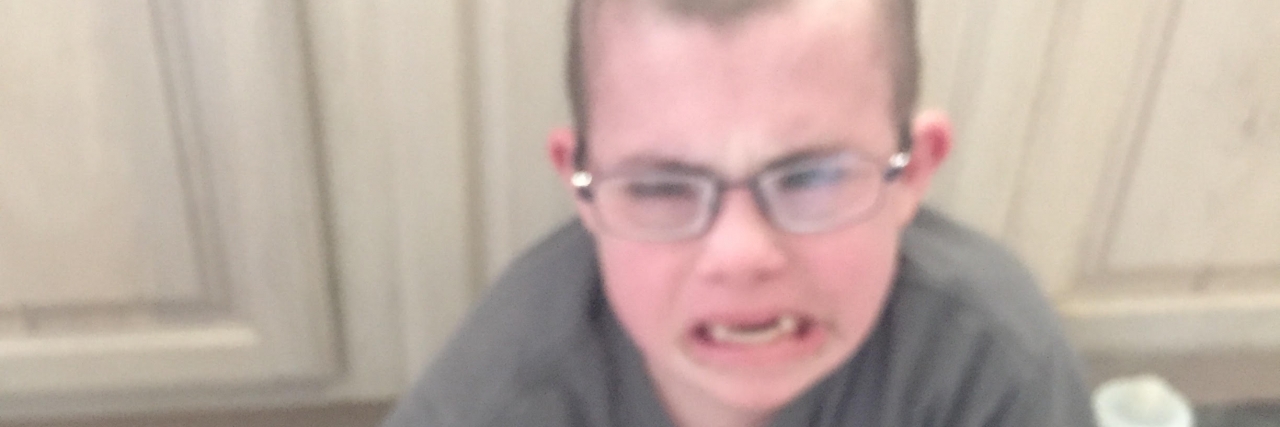When people find out that I have kids with Down syndrome, there are certain turns the conversation always seems to take. Whether it’s questions, assumptions, or myths that need busted, Down syndrome is a conversation starter. Here are some of the most common questions and comments I get, and my answers.
1. “I love how they’re always happy!”
While I love the positivity in this statement, it’s categorically false. Down syndrome does not alter the range of emotions a person is capable of experiencing. My boys express an enormous range of emotions. I am not sure there’s any emotion they are lacking. They have the same feelings as any other child.
2. “There are levels of Down syndrome, right?”
I’m never quite sure what this one means, but I hear it a lot, but no, there are not levels of Down syndrome. Down syndrome affects different bodily systems like cognitive function (IQ), digestion, heart, muscles, and even facial structure and more. How each individual is impacted in each area varies widely. Some people have majorly affected hearts and some have no heart problems at all. Some people have lower IQ’s and some have average IQs. To take my two boys as an example, Alex’s IQ is in the mid 60’s, so he’s mild to moderately impaired in cognition. He was born with a small hole in his heart which repaired on its own, with no intervention, and health-wise, he only has ear, nose and throat problems.
Ben’s IQ is in the 40’s, and he was born with Hirschsprung’s disease and hearing impairment. Ben has no heart problems, but he had leukemia, which is more common in Down syndrome. He also has autism, which is more common in Down syndrome, and a few other medical concerns. As you can see, just between these two individuals, there is enormous variation, and that is the case with all people with Down syndrome.
3. “Are they ‘high functioning?’”
What exactly does this mean? My guess is that saying “high functioning” makes people feel better about Down syndrome, but it’s not really a useful term. When I first had a child with Down syndrome, I bought into the myth that “high functioning” is better. While I can see that higher intelligence might make it easier for a person to become as independent as possible, I no longer consider “higher functioning” as better. Each individual has much to offer, and there’s no reason to assume any one factor is better than others.
There are also certain questions that I get specifically as a parent of two children with Down syndrome.
4. “Are they both yours?”
Um, yeah. I didn’t kidnap anyone.
I believe this question is asking if one is adopted. I get the curiosity, but I never quite know what to say. I generally try to give this one a positive spin by saying we enjoyed parenting Alex so much that we wanted another child with Down syndrome. In our case, yes, one is adopted. There are usually dozens of adoption spin-off questions as well. But Ben’s story is Ben’s, and involves a whole other family, so I try not to overshare a story that involves so many other people.
5. “How do they get along?”
How do your kids get along? Hugging one minute and Ultimate Fighting the next? Yep, mine too.
6. “Are you going to have more?”
I don’t believe so, but children tend to kind of fall into my lap, so I remain open.

